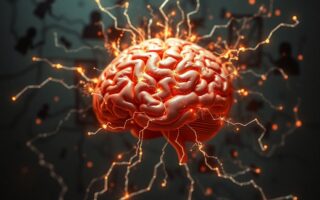Understanding Mental Breakdowns: Causes, Symptoms, and Coping Strategies
A mental breakdown, often referred to as a nervous breakdown, is a colloquial term used to describe a period of intense mental distress or instability. It’s important to note that “mental breakdown” is not a clinical term recognized by mental health professionals, but rather a lay term used to describe a range of psychological experiences. In this article, we’ll explore what a mental breakdown entails, its potential causes, common symptoms, and strategies for coping with and preventing them.
What is a Mental Breakdown
While there is no universally accepted definition of a mental breakdown, it generally refers to a state of severe psychological distress that interferes with an individual’s ability to function effectively in daily life. It may manifest as overwhelming emotions, cognitive impairment, and behavioral changes. A mental breakdown can occur suddenly or develop gradually over time, and its severity can vary widely from person to person.
Causes of Mental Breakdowns
Mental breakdowns can be triggered by various factors, including prolonged stress, trauma, unresolved emotional issues, significant life changes or losses, chronic illness, substance abuse, and underlying mental health conditions such as depression, anxiety disorders, or bipolar disorder. In some cases, a combination of these factors may contribute to a breakdown.
Mental breakdown symptoms
The symptoms of a mental breakdown can vary depending on the individual and the underlying causes. Common signs may include:
- Intense feelings of overwhelm, hopelessness, or despair.
- Difficulty concentrating or making decisions.
- Persistent anxiety, panic attacks, or obsessive thoughts.
- Emotional volatility, such as frequent mood swings or uncontrollable crying spells.
- Withdrawal from social activities or isolation from others.
- Changes in sleep patterns, such as insomnia or excessive sleeping.
- Physical symptoms like headaches, digestive issues, or fatigue.
- Loss of interest in previously enjoyed activities.
- Impaired memory or confusion.
- Suicidal thoughts or self-harming behaviors.
Mental breakdown treatment
If you or someone you know is experiencing symptoms of a mental breakdown, it’s essential to seek support from a mental health professional. Treatment options may include therapy (such as cognitive-behavioral therapy or dialectical behavior therapy), medication, lifestyle changes, and self-care strategies.
Additionally, there are several coping strategies that individuals can implement to manage symptoms and prevent future breakdowns:
- Self-awareness: Pay attention to your thoughts, emotions, and physical sensations. Practice mindfulness and self-reflection to better understand your triggers and coping mechanisms.
- Healthy lifestyle habits: Prioritize regular exercise, nutritious eating, adequate sleep, and relaxation techniques like deep breathing or meditation.
- Social support: Lean on friends, family members, or support groups for emotional support and encouragement.
- Setting boundaries: Learn to say no to excessive demands or commitments that may contribute to stress overload.
- Seeking professional help: Don’t hesitate to reach out to a therapist or counselor for professional guidance and support. Therapy can provide a safe space to explore underlying issues, learn coping skills, and develop resilience.
Conclusion
While experiencing a mental breakdown can be frightening and overwhelming, it’s essential to remember that help and support are available. By understanding the potential causes, recognizing the symptoms, and implementing effective coping strategies, individuals can navigate through challenging times and work towards healing and recovery. Remember, you are not alone, and seeking help is a sign of strength, not weakness.













